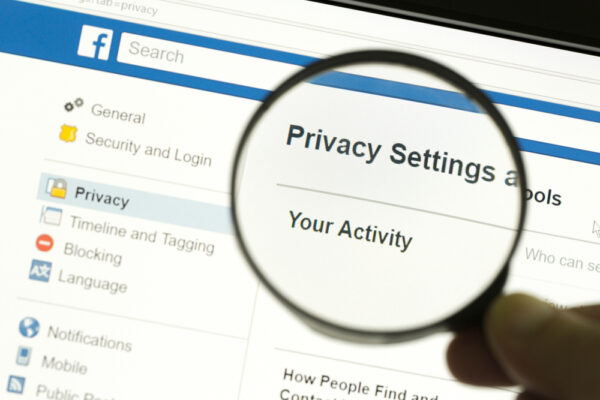Everywhere we turn, companies and governments are seeking information about us and everyone we interact with. Advertising companies mine our internet searches to provide “more relevant” ads. Cameras watch our intersections and our front doors. Drones fly in our skies. And we volunteer personal information through the trackers on our wrists.

As Facebook’s Mark Zuckerberg once put it, “the age of privacy is over.”
In a new book, “Why Privacy Matters,” one of the world’s leading experts in privacy law, Neil Richards, the Koch Distinguished Professor in Law and co-director of the Cordell Institute for Policy in Medicine & Law at Washington University in St. Louis, argues privacy is not dead, but up for grabs.
Here, he discusses why privacy is important and why we need new privacy rules.
Why does privacy matter?
Simply put, privacy matters because information is power and human information confers power over human beings like you and me. Privacy rules interrupt, shape and constrain these uses of our information to monitor, segment, nudge and manipulate us, and we need better privacy rules to advance important human values like the development of our identities, the exercise of our political freedom, and our protection as consumers in a digital marketplace. Privacy rules allow us to obtain these undeniably good things, and we need to fight for better ones.

What is the future of online privacy?
There’s a lot of fatalism about privacy. As I explain in the book, I decided I needed to write it after having the same conversation about the alleged death of privacy — I call it ‘the Privacy Conversation’ — over and over again. Privacy isn’t dead, it’s about power, and the rules governing who gets to exercise the power of human information and in what ways are very much up for grab. Powerful entities that use our human information have a lot to gain from public fatalism and the belief that privacy is dead or dying — that’s why companies like Facebook and agencies like the National Security Agency are so keen to get us to give up and let them read us like open books.
But of course, this is a lie — both entities recognize the power of information, whether it’s spying on our lives under commercial or national security rationales, or making their own visitors and employees sign non-disclosure agreements. Privacy isn’t dead — but its future is up for grabs, and my book tries to make the case for continuing to preserve privacy as a fundamental right on the occasion of its supposed death. When it comes to privacy, then, the future is very much up to us, and to the choices we make to enact binding rules on corporate and government actors who seek to use our human information for their own benefit.
What do you hope people take away after reading this book?
I hope that when people finish my book, they will have finished a readable (occasionally personal and even funny) explanation of how to think about privacy in our complex digital age and of the many good things that privacy can do for all of us. There are many myths and misconceptions about privacy; some of them are the result of outdated ideas and others are self-serving myths put forward by those with the most to gain from a reduction in privacy.
I hope that my book helps people to clear through the clutter, the myths and the falsehoods to see that the fight for privacy in a digital age is nothing less than the fight for what our digital society will look like and who the winners and losers in that future society will be. I sincerely hope that ordinary people will ultimately be the winners in the digital age, but it’s going to take a fight — and clear thinking about why privacy matters — for us to get there.
“Why Privacy Matters” was released Dec. 2 and is published by Oxford University Press. It has been named an Amazon “Editor’s Pick” for best non-fiction.


